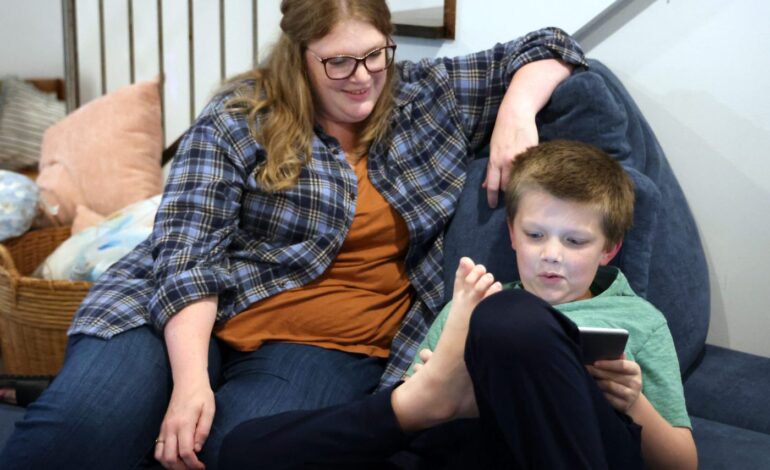Thousands of Complaints Unresolved After Chicago Civil Rights Office Closure

The closure of the Chicago Office for Civil Rights (OCR) has left thousands of complaints unresolved, significantly impacting families seeking educational justice. Mollie McGuire, whose son has faced severe anxiety and developmental challenges, is among those affected. After being denied an Individualized Education Plan (IEP), McGuire filed a complaint with the U.S. Department of Education’s OCR, only to see her case stalled following the office’s abrupt closure under the Trump administration.
In March 2017, the Department of Education announced the closure of seven regional OCR branches, including the one in Chicago, as part of a larger strategy to dismantle the agency. This decision redirected complaints to the Denver office, where resources are limited, and staff are overwhelmed with a backlog exceeding 4,200 cases, many from Illinois. The sudden increase in workload has led to frustrations among parents and advocates, who argue that the complaint system was already under strain before these closures.
“Investigations can take years to resolve, but it remains a crucial option for those seeking accountability,” said Frank Lally, an education policy analyst with Access Living, a Chicago-based disability services nonprofit. “What’s preventing school districts from prioritizing accessibility?”
Each year, the OCR investigates thousands of discrimination complaints involving K-12 institutions, universities, and libraries. If a violation of civil rights laws is confirmed, the OCR can issue resolution agreements and withhold federal funding from non-compliant schools. Notably, a significant portion of pending cases in Illinois pertain to disability discrimination, highlighting the urgent need for effective oversight.
The Trump administration’s overhaul of civil rights enforcement has been marked by a significant reduction in staff and resources. Following the administration’s directives, OCR attorneys were instructed to stop external communications, leading to a halt in most investigations. While staff were allowed to resume work on disability discrimination cases in February 2018, many expressed skepticism regarding the agency’s ability to recover fully, especially with ongoing restrictions on civil rights initiatives.
A former OCR attorney from Chicago described the closures as a “profound betrayal” of the agency’s mission. “These obligations and rights still exist, but there’s nobody to enforce them,” the attorney stated. The Denver office, which has absorbed cases from Chicago, has also faced staff reductions, causing a further backlog. Typically, an OCR attorney manages between 30 to 50 cases at a time; however, the number surged to over 300 within weeks of the closure.
From March to June 2017, the OCR received 4,833 complaints but dismissed 3,424, citing adherence to case processing guidelines. In a notable shift, the White House has instructed OCR attorneys to prioritize cases involving alleged “illegal diversity, equity, and inclusion” practices in schools, including investigations into programs such as Chicago Public Schools’ Black Student Success Plan.
For parents like McGuire, the stakes are high. Her son began experiencing panic attacks in October 2022, symptoms that escalated to severe depression and post-traumatic stress disorder (PTSD). Despite his diagnoses, school officials delayed necessary evaluations for an IEP, contributing to his distress. The situation deteriorated to the point where McGuire had to take her son to the emergency room for suicidal ideation.
After filing her complaint with the OCR in December 2024, McGuire was scheduled for an intake call on January 24, 2017, just days after President Trump’s inauguration. The appointment was canceled, and communication ceased. McGuire expressed her frustration: “It’s our only avenue left for any type of accountability for what happened to my son,” she said. “And now I’m not counting on it.”
In Illinois, alternatives exist for resolving IEP-related disputes, including mediation through the Illinois State Board of Education and due process hearings. However, these options do not cover students with Section 504 plans, which focus on access rather than extensive accommodations.
Despite the OCR’s functional status, many doubt that filing a complaint will yield meaningful results, especially given the urgency of issues facing school-aged children. “If a child is being discriminated against today, waiting two to four years for resolution is ineffective,” noted Matt Cohen, a special education attorney in Chicago. “They need help right now.”
Legal experts warn that the rollback of civil rights protections could exacerbate educational inequities. “Litigation is an option, but it requires resources that many families lack,” said Barbara Cohen, a legal advocate with the Legal Council for Health Justice in Chicago. “OCR provided a way for parents to file complaints without needing a lawyer.”
The significant reductions in force at the Department of Education spurred lawsuits from labor unions and advocacy groups, asserting that such cuts required congressional approval. Recently, some OCR staff began returning to their positions following a federal judge’s order after a lawsuit was filed by a national victims’ rights advocacy group. However, those familiar with the agency’s operations remain cautious about a quick return to full functionality.
Judith Levitt, a retired OCR attorney, emphasized the challenges ahead. “It’s not like you could just start resolving cases, 1-2-3,” she said, highlighting the complexities posed by the backlog and reduced staffing.
As the OCR navigates these turbulent waters, thousands of civil rights complaints remain unresolved, leaving many families like McGuire’s in a state of uncertainty. Despite the challenges, McGuire has turned her experiences into advocacy, now serving as vice president of the Family Advisory Board at CPS’ Office for Students with Disabilities. Her son is now thriving at his therapeutic day school, but the memories of their struggles linger.
In April 2025, McGuire reached out again to the Chicago attorney initially assigned to her complaint, hoping for an update. Yet, as of now, her inquiries have gone unanswered, reflecting the ongoing struggles faced by families navigating the complex landscape of educational rights.






